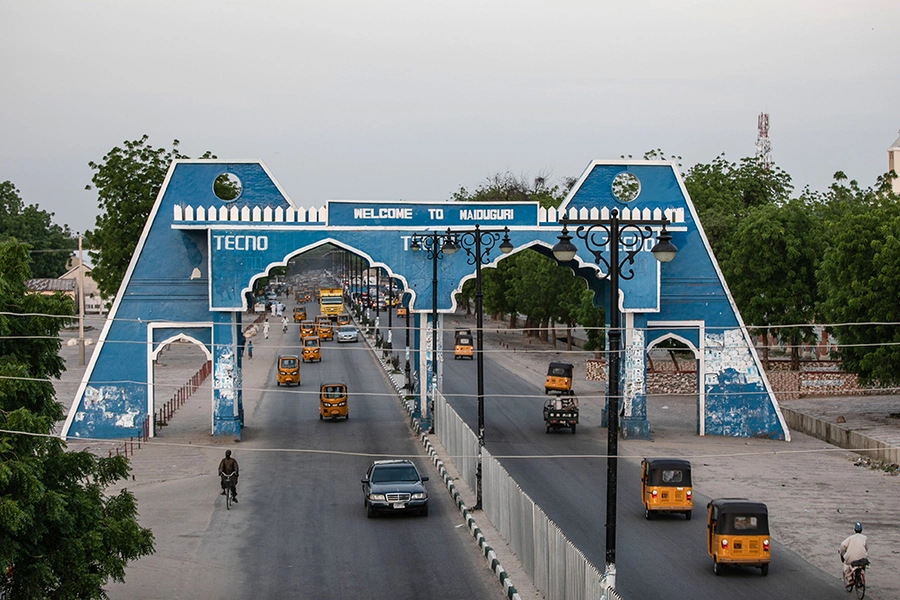Borno State Increasingly Isolated as Boko Haram Threatens Roads

Over the last couple of weeks, Boko Haram has increased attacks on the road from Maiduguri to Kano, the only remaining safe highway of the six major roads that connect Maiduguri with the rest of the state and country, according to Nigeria media. A major report on the increasing isolation of Maiduguri closely follows Boko Haram attacks on transmission lines supplying the city with electricity. Destroyed bridges and frequent attacks on travelers have cut off not only Maiduguri residents, but many other residents of Borno state from accessing or travelling to Borno’s neighboring states. In response, the Nigerian army has evacuated many villages along the highway, causing hardship and anger among the residents and friction between the governor of Borno state and the army.
Borno state and its capital, Maiduguri, have been ground zero for Boko Haram. Mohammed Yussuf founded the movement in Maiduguri, the police murdered him there in 2009, and Boko Haram emerged there in 2011 as a deadly terrorist movement. By 2015, Boko Haram controlled a territory as large as Belgium in Borno and adjacent Yobe and Adamawa states. The Nigerian army, assisted by Chadian forces and South African mercenaries, pushed Boko Haram back. But, there has been a Boko Haram resurgence. Though it is unclear the extent to which either Boko Haram faction actually governs territory, it is now able to operate in three states, especially Borno, and in some places it even provides a modicum of governance. It has seemingly pushed the security services back into fortified super camps, particularly Maiduguri. Local resident fear that Boko Haram will, with the closing of the Maiduguri-Kano highway, completely cut off Maiduguri and Borno state from the rest of Nigeria. The faction that is most active appears to be the Islamic State in West Africa (ISWA), though Abubakar Shekau’s faction has also been active.
More on:
Nominally, Borno has a population of more than four million, and Maiduguri has a population of more than two million. However, because of the flow of internally displaced persons, it is hard to know how many people are now living there. Traditionally the state has been a center of trade, agriculture, and fishing. Borno was a center of the cattle industry, and a transit point for fish caught in Lake Chad. These activities are all dependent on the roads.
The security services have so far been able to repel frequent Boko Haram attempts to destroy the bridge along the Kano-Maiduguri highway. If that bridge is destroyed, or attacks on travelers renders the road inaccessible, as a practical matter the only way to get to Maiduguri will be by air. Maiduguri has an international airport which remains open, and the city remains the headquarters of the Nigerian army operating against Boko Haram. It remains to be seen whether the isolation of Borno is part of a larger Boko Haram strategy and whether is presages a return to occupying and governing territory.
More on:
 Online Store
Online Store